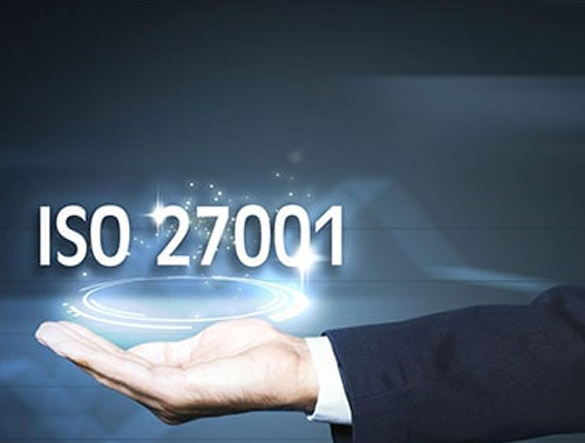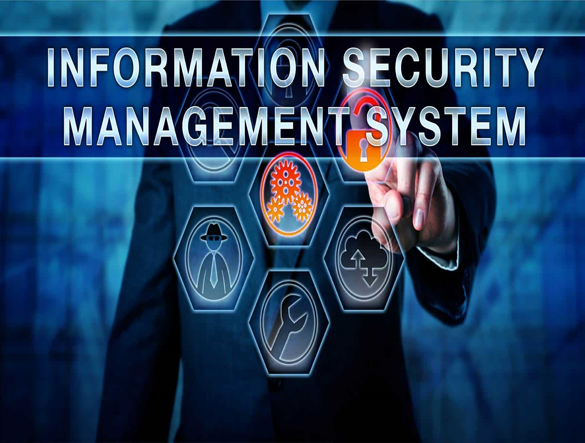
What is ISO 27001 Certification?
ISO 27001:2022 certification is a globally recognized standard that outlines the requirements for an Information Security Management System (ISMS) focused on Information Security, Cybersecurity, and Privacy Protection. Organizations that establish an ISMS can achieve certification through an accredited certification body like KPR Global Certification Inc, USA. An ISMS is a comprehensive framework of policies and procedures designed to manage information security risks, incorporating legal, physical, and technical controls to safeguard sensitive data and IT systems. This standard emphasizes robust protection for information, cybersecurity, and privacy within an organization's risk management processes
Why is ISO 27001 Certification so important for Business?
ISO 27001 certification is crucial for businesses as it establishes a systematic approach to managing sensitive information, ensuring its confidentiality, integrity, and availability. This certification enhances trust among clients and stakeholders by demonstrating that an organization has effective security controls in place, reducing the risk of data breaches. Additionally, ISO 27001 helps organizations comply with legal and regulatory requirements, safeguarding them from potential penalties and enhancing their competitive edge in the marketplace.


What are the benefits of ISO 27001 Certification?
Achieving ISO 27001 certification offers numerous benefits, including:
- Enhanced security for information and systems – Ensures stronger protection of sensitive data and IT infrastructure.
- Lower risk of data breaches and cyber-attacks – Reduces vulnerabilities and mitigates potential threats to your information.
- Greater trust from customers and partners – Increases confidence and credibility with external stakeholders.
- Improved compliance with data protection regulations – Assists businesses in meeting legal and regulatory data security requirements.
- Boosted reputation and marketplace credibility – Demonstrates your organization’s commitment to information security, strengthening its market standin
Similarities Between ISO 27001 and SOC 2
SOC 2 and ISO 27001 are closely aligned in several important aspects, both aiming to enhance information security practices within organizations. Here are some key points of alignment:
- Information Security Focus: Both SOC 2 and ISO 27001 prioritize the safeguarding of sensitive information, mandating that organizations implement necessary controls to protect data.
- Risk Management: Both frameworks emphasize the identification, assessment, and management of risks related to data security and privacy, with ISO 27001’s Information Security Management System (ISMS) and SOC 2’s Trust Service Criteria serving as foundational elements.
- Control Frameworks: ISO 27001 requires the implementation of specific controls outlined in Annex A, while SOC 2 defines controls based on five Trust Service Criteria: security, availability, processing integrity, confidentiality, and privacy. Both require comprehensive security measures.
- Continuous Monitoring and Improvement: Both standards necessitate ongoing monitoring, evaluation, and continuous improvement of security processes to maintain compliance and adapt to emerging risks.
- External Validation: Compliance is verified through external audits—SOC 2 reports are issued after an audit by a third-party CPA, while ISO 27001 certification is awarded following an audit by an accredited certification body.
Despite these similarities, it’s worth noting that SOC 2 is primarily tailored for service providers in the U.S., especially in the cloud computing and SaaS sectors, whereas ISO 27001 is an international standard applicable to a broader range of industries, aiding organizations in meeting security and privacy requirements.


Importance of ISO 27001 Certification in the USA
What type of companies must go for ISO 27001 certification in USA. Organizations that handle personal information in industries such as healthcare, SaaS, finance, banking, insurance, and IT service providers must comply with information security regulations in the U.S. to ensure the protection of sensitive data
Compliance with Data Protection Laws
- Health Insurance Portability and Accountability Act (HIPAA)
- Gramm-Leach-Bliley Act (GLBA
- California Consumer Privacy Act (CCPA):
- Family Educational Rights and Privacy Act (FERPA):
- Cybersecurity Information Sharing Act (CISA)
- Federal Information Security Management Act (FISMA)
- State Data Breach Notification Laws
- Non-compliance with information security laws can result in severe fines, lawsuits, and damage to an organization's reputation. For example, violations of HIPAA can lead to fines ranging from $100 to $50,000 per violation, with a maximum annual penalty of $1.5 million. Similarly, violations of CCPA can result in penalties up to $7,500 per record for intentional violations.
- U.S. laws emphasize the protection of personal data to maintain consumer trust. Failing to safeguard this information can result in reputational damage, loss of customers, and reduced business opportunities, especially when consumers are increasingly aware of their privacy rights under regulations like CCPA.
- Different industries have specific legal requirements regarding information security. For example, the Payment Card Industry Data Security Standard (PCI DSS) is mandated for businesses that handle credit card information to protect cardholder data and prevent fraud.
- ISO 27001 certification equips organizations with a framework to proactively address and adapt to emerging cybersecurity threats. By regularly assessing and updating their information security management systems, businesses can stay ahead of potential risks and vulnerabilities. This continuous improvement approach ensures that security measures evolve in response to the dynamic nature of cyber threats, enhancing overall resilience and protection

